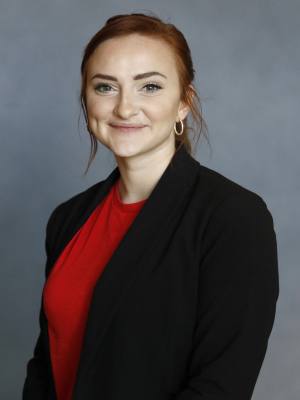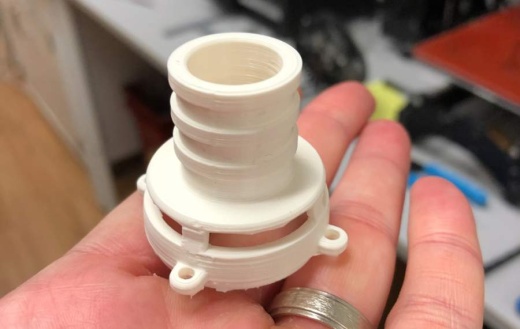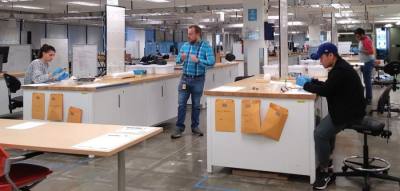Walter Voit, associate professor at UT Dallas’ engineering school, said he wanted to help his wife, an Ear, Nose and Throat surgeon at UT Southwestern, feel safer at work. With the help of UT Southwestern, Voit said he began looking at how his engineering team could make a difference in the medical community.
They eventually narrowed in on an essential ventilator component known as the positive expiratory pressure valve, a disposable piece that Voit said helps a patient retain some air while exhaling.
“It's our understanding that patients need to maintain positive pressure in their chest cavity and in their airways so that their lungs don't collapse during ventilation,” Voit said.
A group of UT Dallas faculty members and graduate students began developing the valve in March, Voit said. The UT system allowed the group to use a senior design studio space on campus, and by Day 6, they had their first working prototype. Several thousand test valves were printed before they landed on a design that worked, Voit said.
“We had somewhere around 50 to 70 devices that we printed and manufactured,” he said. “We ran them through very aggressive tests.”
Voit is also the founder and CEO of Adaptive 3D Technologies, which supplied the rubber used in the inner component and outer casting of some of the valves. The piece is in the process of being approved by the Federal Drug Administration, Voit said. A revised submission was turned in May 11, he added.
“What we hope is that these will gather dust on the shelves of hospitals and that hospitals will feel a little safer and more secure,” Voit said.
The group is working on designing and printing other medical items that are needed to fight COVID-19, such as personal protective equipment and testing swabs. The swabs present a unique challenge in finding a way to package them in a sterile way, Voit said. He expects the project to evolve over the next 3-7 weeks.
“We are trying to make sure that Texas has the swabs that it needs,” he said.
Voit believes it is important for university systems to use their vast resources during times of crisis.
“Having a big need is where great universities step up and solve problems,” he said.






